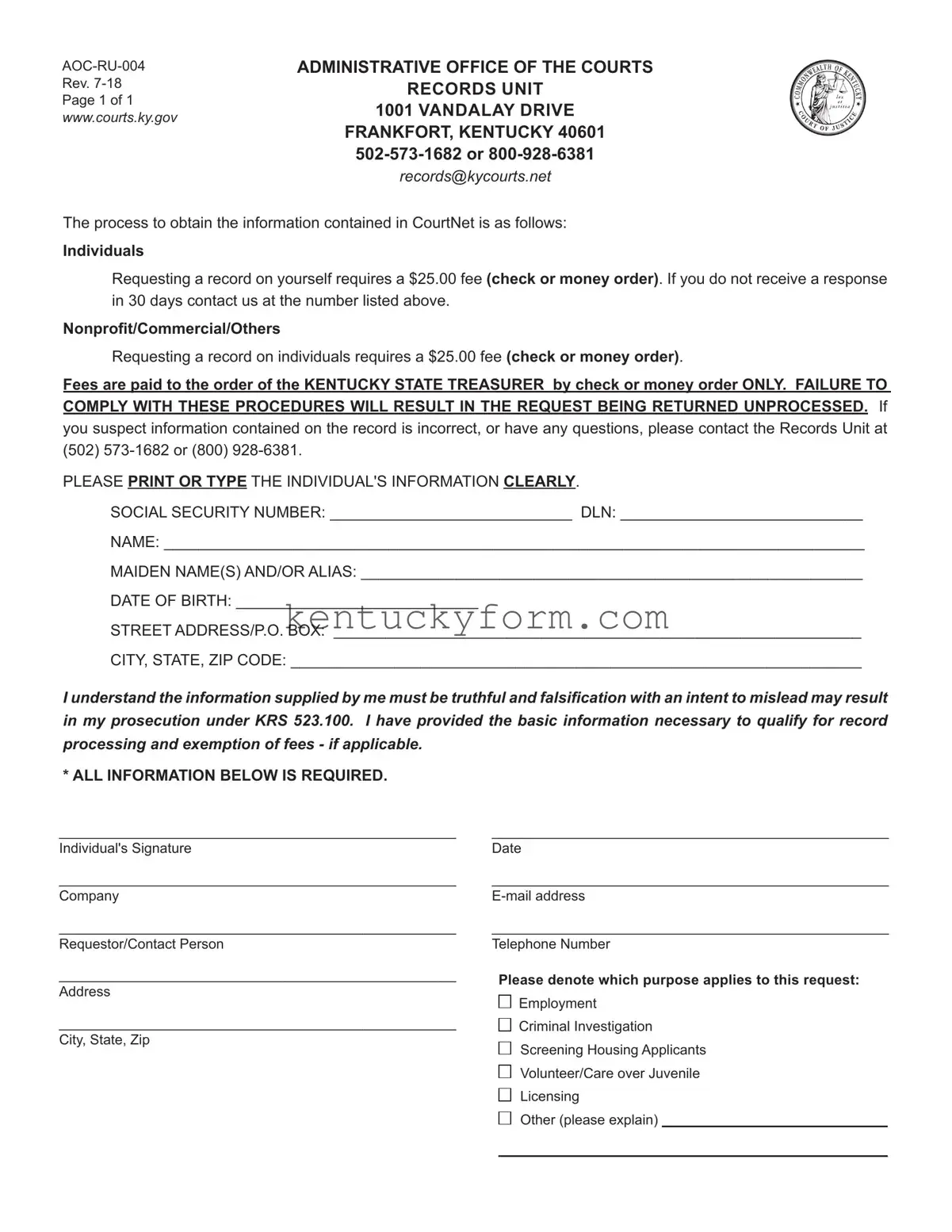The AOC-RU-004 form shares similarities with the National Instant Criminal Background Check System (NICS) background check form used for firearm purchases. Both documents serve to gather individuals’ personal information to perform background checks, albeit for different reasons. The AOC-RU-004 is generally aimed at accessing court records, while the NICS form is specifically for preventing the sale of firearms to prohibited persons. Each form requires essential information such as full name, maiden name or aliases, and date of birth, ensuring accurate identification of the individual in question. Both forms facilitate safety and legal compliance, reflecting their shared goals of thorough background reviews.
Just as the AOC-RU-004 form, the IRS W-9 form is used to collect personal information, but for tax identification purposes. Individuals and entities use the W-9 to provide their Taxpayer Identification Number (TIN) to entities that will pay them income during the tax year. Like the AOC-RU-004, which requires detailed personal identification to access court records, the W-9 ensures accurate processing by requesting detailed identity information, including name and address. Both forms are critical for compliance with U.S. regulations, albeit in different legal contexts: one for judiciary matters and the other for tax reporting.
The Form I-9, Employment Eligibility Verification, bears resemblance to the AOC-RU-004 as both necessitate personal information to verify status — the I-9 validates eligibility to work in the U.S., while the AOC-RU-004 is for accessing court records. Each document requires specific identifiers like name, date of birth, and address. The key purpose of both forms is to verify an individual’s legal status for a particular function, whether for employment or to ensure accurate court record retrieval, highlighting the importance of accurate personal data collection in legal and regulatory processes.
Similarly, the U.S. Passport Application Form also parallels the AOC-RU-004 in its requirement for detailed personal identification to process an application. Both forms collect names, including maiden names or aliases, date of birth, and address to establish the applicant’s identity. While the passport form is utilized to issue a document allowing international travel, the AOC-RU-004 facilitates access to judicial records. Their similarities underscore the rigorous identification processes necessary for security and legal procedures within different government functions.
Lastly, the Health Insurance Portability and Accountability Act (HIPAA) Authorization Form is related to the AOC-RU-004 in its handling of sensitive personal information, though for healthcare purposes. This form authorizes the release of an individual’s health information to specified parties, mirroring the AOC-RU-004's requirement for personal details to access court records. Both documents require explicit consent from the individual regarding the use of their information, reflecting a shared emphasis on privacy rights and the careful management of personal data across diverse legal settings.


